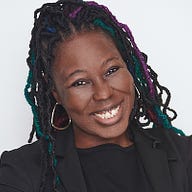A theme park that immerses fans in the world of a favorite movie.
A board game or video game adapted from an existing story world.
A fictional character’s favorite T-shirt made in real life for fans to purchase.
Although the term “transmedia storytelling” may be unfamiliar to some, the concept is nothing new. Transmedia narratives use multiple mediums to tell a more complete story. Unlike adaptations, which retell an existing story in a new medium, transmedia allows for creatives to explore new areas of an existing world, expanding upon the setting or fleshing out characters beyond what’s already on the page.
For independent authors, the practice can offer more than just creative storytelling opportunities.
“In a world where everyone is hungry for more (and more, and more) content, employing a transmedia strategy allows you to expand your IP into multiple income streams that have the potential to reach different audiences—plus it’s simply fun to take such an expansive approach to your fictional worlds and stories,” writes author Ember Casey.
Two different ideas exist for how to approach transmedia, called “East Coast,” which deepens existing stories, and “West Coast,” which broadens the world beyond what readers might encounter in one medium. Both can be effective for connecting a wider array of readers with your projects and turning your current readers into superfans, according to Kristine Kathryn Rusch.
“As writers, we create more than products,” Rusch wrote in a July 2023 blog post on https://kriswrites.com. “We create stories that people get lost in, stories that mean so much more to people than we the authors do. That’s something important to remember.”
Of course, transmedia storytelling can benefit authors from a business perspective too. Although many authors, including Casey, agree it likely won’t be required for an author to find success in the future, the concept offers another avenue for marketing your work and fostering brand recognition—both of which can pay dividends.
“There are many paths for indie authors these days—which means I don’t believe that any one strategy is required for success—but I do believe that authors who stop defining themselves as ‘writers’ and start seeing themselves as ‘storytellers’ will see their opportunities (and creative projects) expand,” Casey writes. “And those who expand their IP across different forms of media will find their businesses more resilient to industry fluctuations in the long run.”














